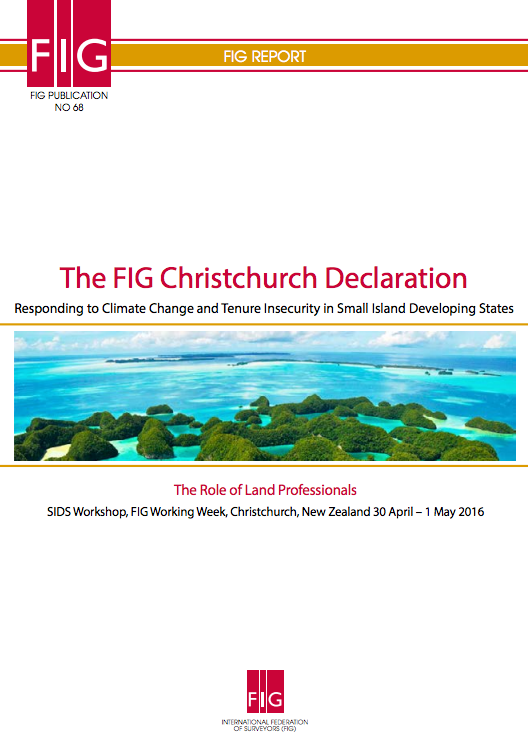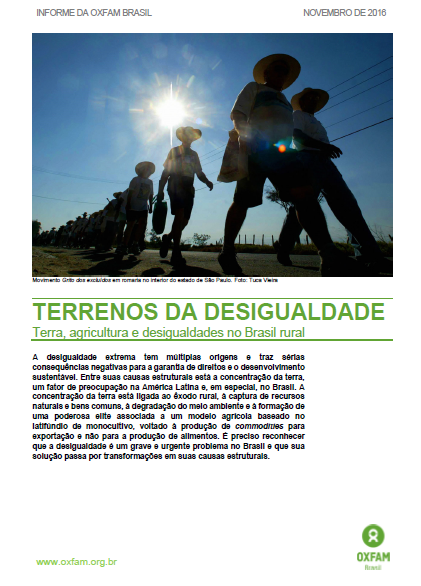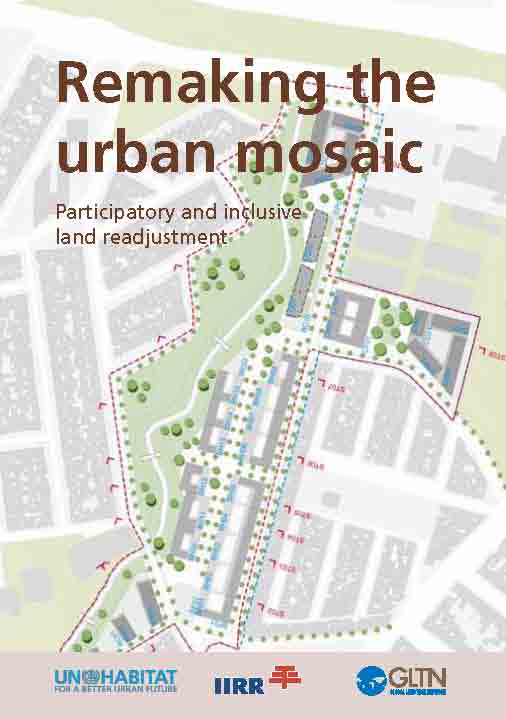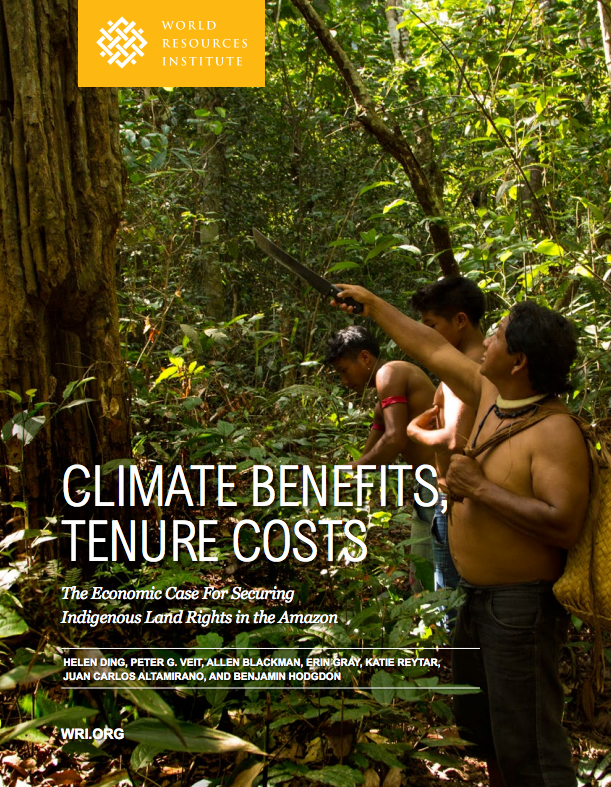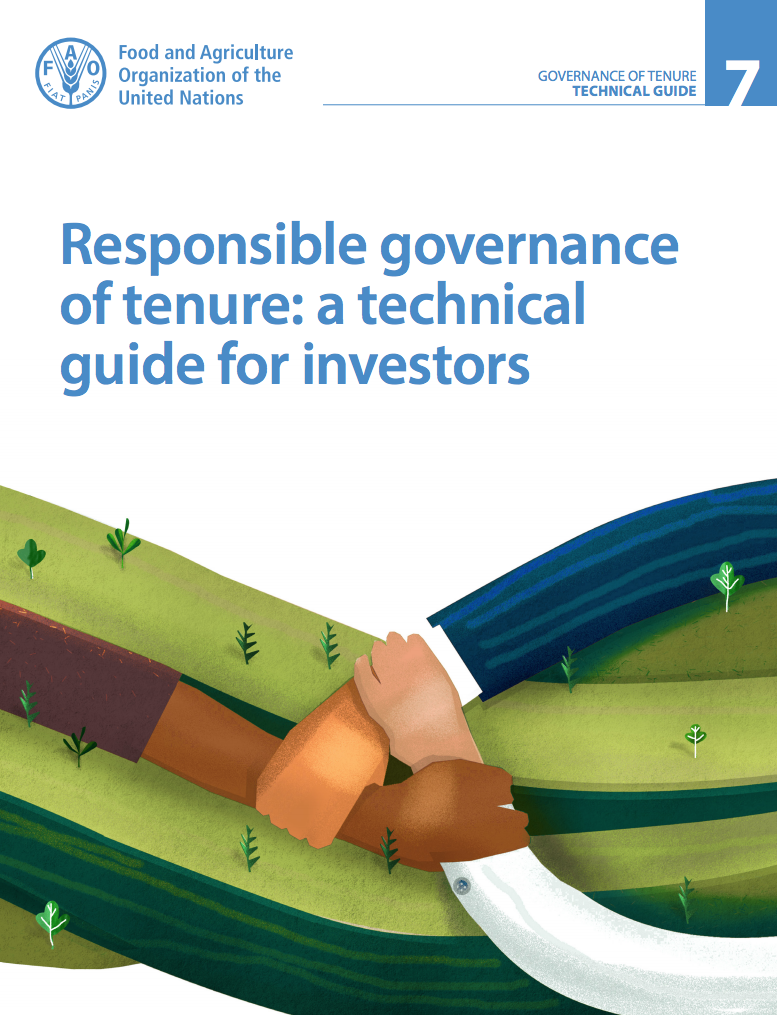The FIG Christchurch Declaration - Responding to Climate Change and Tenure Insecurity in Small Island Developing States
This publication is the result of the workshop on “Responding to Climate Change and Tenure Insecurity in Small Island Developing States – The Role of Land Professionals” held in Christchurch, New Zealand 30 April – 1 May 2016 in connection with the FIG Working Week 2016. It includes a report of the seminar and a FIG Christchurch Declaration as the main outcome of the workshop.

